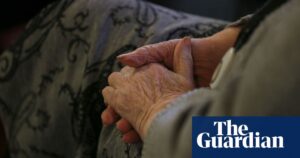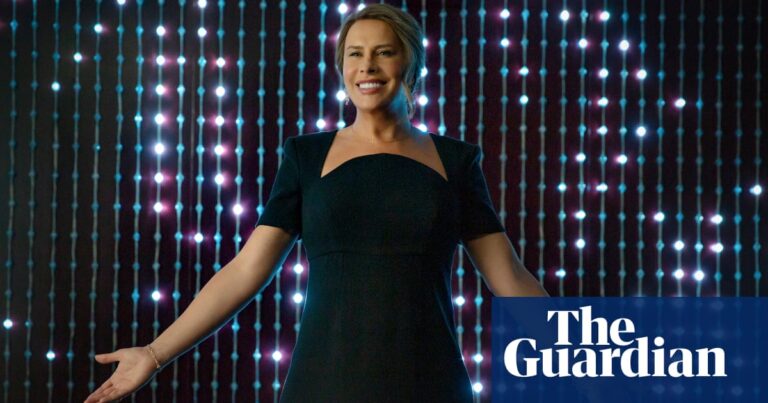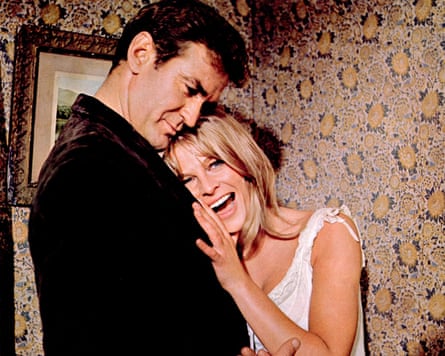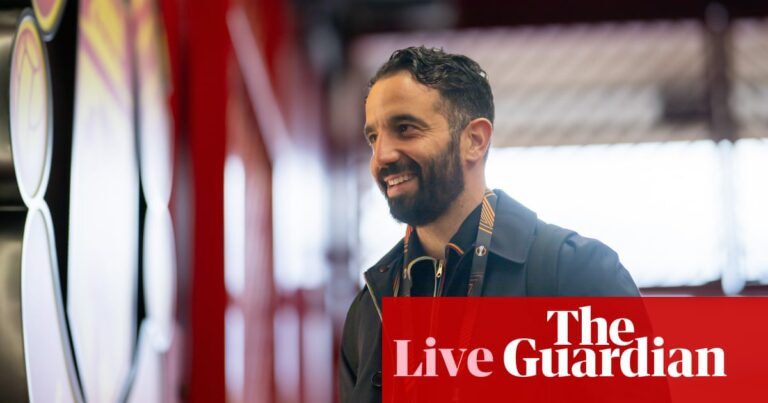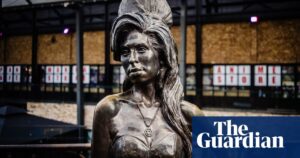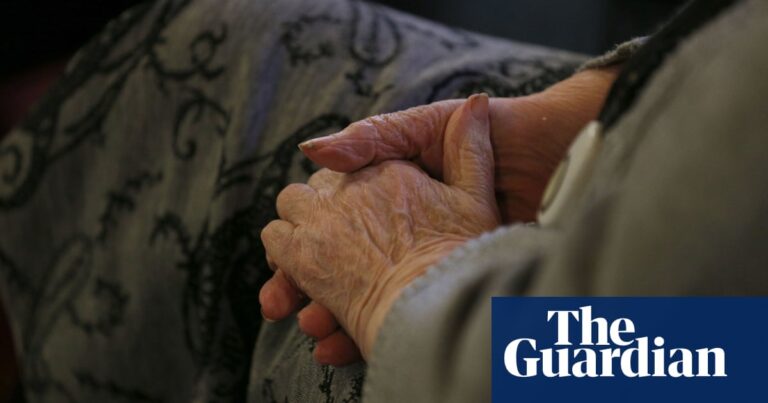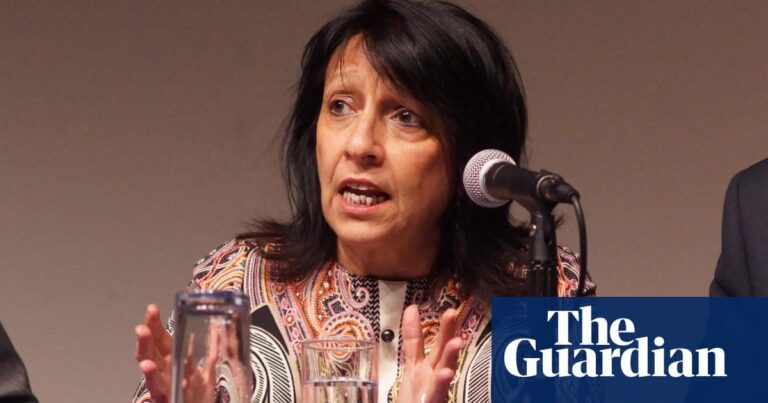A
Last summer at Cork Opera House, the sold-out concert by Lankum featured a sharp-suited support act who had the audience captivated with his skillful playing of the bouzouki. This talented artist was Mohammad Syfkhan, a Kurdish Syrian singer and musician whose first album, I Am Kurdish, has become a significant part of the flourishing music community in one of Ireland’s tiniest counties.
Syfkhan, a 57-year-old father of five, brings a captivating blend of Kurdish, Arabic, and Turkish traditional music to his covers and originals. He and his wife, Huda, who is a teacher, along with their daughter, Noor, arrived in Ireland in December 2016 through a refugee settlement program. In an email, Syfkhan expresses his love for music that evokes memories of the past. While he struggles with spoken English interviews, his written English is eloquent and heartfelt. He shares, “I am drawn to joyful music because it helps me forget the pain of my past.”
Syfkhan incorporated music into his work schedule while living in Syria. During his time as a surgical nurse in Aleppo, he learned to play the bouzouki, a type of Anatolian lute with a long neck. In his mid-20s, he moved to Raqqa after completing his studies. He later formed the well-known Al-Rabie Band and performed at various events such as festivals, concerts, and parties for many years. However, in 2011, the Syrian civil war broke out, causing major disruptions in the country. Two years later, Raqqa was taken over by the Syrian National Coalition, and eventually by Islamic State. Tragically, Syfkhan lost one of his sons, Fadi, at the hands of Islamic State a year later.
One of the jihadi terrorists informed Syfkhan of the news through a call on his son’s mobile phone. To ease his mind, he often looks at old pictures of his children and imagines a brighter future for them. Due to circumstances, his three older sons were forced to seek refuge in Germany, while Mohammad, Huda, and Noor managed to reach Greece by February 2016. Ten months later, this trio arrived in Ireland and were accommodated in Mosney Village, a former Butlin’s holiday camp that now serves as an asylum center.
Syfkhan played his first gig there a few weeks later. “It was during Christmas and approximately 100 to 150 people attended it. It was nice to see this audience. It was a special and unforgettable party.” Singing was his way of communicating, he says. “I did not speak English well, so music was the language I spoke to everyone because music is the language of the world. It talks about love of all kinds, the love of people for each other, and love of the homeland.”
After seven months, he moved into a council house in Carrick-on-Shannon, County Leitrim and began connecting with others who shared his passion for music. In 2018, he crossed paths with Willie Stewart of Nyahh Records at a community event in County Leitrim celebrating diverse cultures. Syfkhan asked Stewart if he could plug his bouzouki into the mixing desk so he could perform, enchanting the audience with traditional Syrian and Kurdish dances. Stewart was impressed and wasted no time in booking Syfkhan for future gigs.
Stewart also organizes experimental events known as Hunters Moon with sound artist Natalia Beylis. Syfkhan attended one of these events where he saw improvising cellist Eimear Reidy and saxophonist and sound artist Cathal Roche perform. Afterward, he invited them to contribute to his album. Reidy was intrigued by his use of precise glissandi and the 24-tone Arab tone tuning system. She described their collaboration as “intense, musically enriching, and joyful”. Syfkhan also mentions appreciatively in an email that he has met talented musicians such as concertina artist Cormac Begley, singer-songwriter Ciaran Rock, and Alan Woods from the Traditional Music Archive.
The album “I Am Kurdish” features beautiful renditions of popular Turkish songs from the 1970s such as “Leylim Ley” and “A Thousand and One Nights” by Baligh Hamdim, as well as a stunning version of Kurdish songwriter Mihemed Elî Şakir’s “Put a Coffee in a Glass”. The standout track, “I Am Kurdish”, showcases Syfkhan’s deep and captivating vocals, prompting Stewart to contemplate the struggles faced by the Kurdish people. With a global population of around 45 million, the Kurds have endured displacement and persecution in the Middle East without a homeland of their own. The significance of choosing this title for the album is not lost on Stewart.
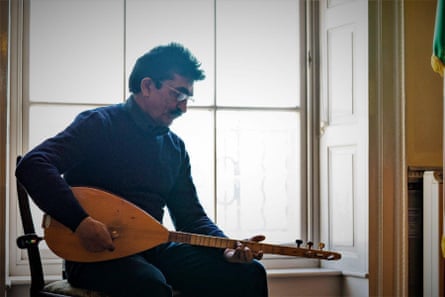
Display the image in full screen mode.
Syfkhan’s close friend, the renowned Irish poet and playwright Vincent Woods, also shares his sentiment, calling their bond “cherished” like that of brothers. Woods collaborated with choreographer Edwina Guckian to create a film for the 2021 Strokestown international poetry festival, in which Syfkhan, Huda, and Noor all star. The film, titled Hunger’s Way/Bealach an Fhéir Ghortaigh, features the Syfkhans walking to the National Famine Museum. In one scene, 11-year-old Noor showcases her Irish dancing skills at the museum’s entrance. The film concludes with the group entering the museum.
Bypass the promotion for the newsletter.
after newsletter promotion
Woods desires to emphasize the ongoing issue of displacement in Ireland’s history, as many individuals who have been displaced are currently seeking a new home in Ireland. He and Syfkhan have also conversed about the shared traits of Kurdish and Irish cultures. Both cultures place great importance on storytelling and it serves as a crucial aspect of their cultural identities, which have faced struggles in preserving themselves.
When I inquire about Ireland, Syfkhan expresses his admiration, saying, “I adore these lovely individuals.” He enjoys songs that celebrate cultural traditions, particularly when they are paired with lively dances and impressive footwork. Syfkhan expresses his appreciation to the government and the beautiful country of Ireland for their unwavering support. The gratitude between Syfkhan and those he has impacted is mutual.
Source: theguardian.com





